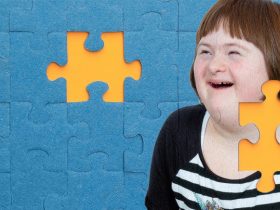Autism Spectrum Disorder (ASD) is a general term that describes a wide range of neurodevelopmental conditions. These conditions have the same effects on victims. They usually influence the victim’s ability to:
- Behave
- Communicate
- Develop
- Socialize
Autism can affect a person’s ability to communicate properly. It can also result in slurred speech. Some victims might require little attention to treat the condition, while others may require full attention. In some cases, autism may prevent the victim from speaking. Studies show that over 25 to 39 percent of children diagnosed with autism spectrum disorder experience speaking problems. That is, they can only say sentences within 30 words or cannot say anything.
Non-speaking autism is a type of autism that prevents a person from talking. It is clinically known as nonverbal autism.
People with autism can still communicate through words. They hear and understand words spoken to them. They reply with words by writing down their thoughts or opinions.
In this article, we will discuss the symptoms, diagnosis, and treatment of nonverbal autism.
Symptoms

The major symptom experienced by people with nonverbal autism is the lack of ability to talk properly. Generally, autism affects your ability to talk to people and communicate clearly. It affects your ability to continue conversations. However, non-speaking leads to the complete loss of ability to talk. The loss of ability to talk can be caused by various factors. Studies show that people with apraxia of speech are more susceptible to nonverbal autism. Apraxia of speech is a condition that disrupts some pathways in the brain. It also affects communication and speech.
Nonverbal autism can also be observed in children with poorly developed verbal communication skills. Symptoms of the condition may exacerbate as a child grows.
Doctors have noticed a link between nonverbal autism and echolalia, [1] a disorder that causes frequent repetition of phrases or words.
Some symptoms of autism do not affect communication skills. These symptoms can be placed in 3 categories:
- Social: People with autism may experience various challenges in their social life. They tend to feel reserved, secluded and shy. They may also avoid eye contact with other people and snub friends or strangers. While some people may try to avoid physical contact completely, others may seek it frequently. In most cases, autistic people feel alone and isolated. As a result, they are more susceptible to mental issues, such as depression and anxiety.
- Behavioural: Behavioral symptoms are not the same for everybody. People with autism like to stick to routines. They tend to get angry when a routine is interrupted. Some autistic people may feel obsessed with a particular job or project. So, they can spend hours on a particular task until it is completed. Loss of ability to focus for a long period may also be a behavioural symptom. It is important to understand what symptoms you’re experiencing before reporting to a doctor.
- Developmental: Research shows that the development rate for people with autism is different. In most cases, children with the condition grow at a normal rate, and then start to deteriorate at 2 or 3 years old. Some children may experience stunted growth at early stages.
As you grow older, some symptoms of autism may become less chronic. Therapy can improve verbal communication and other symptoms.













